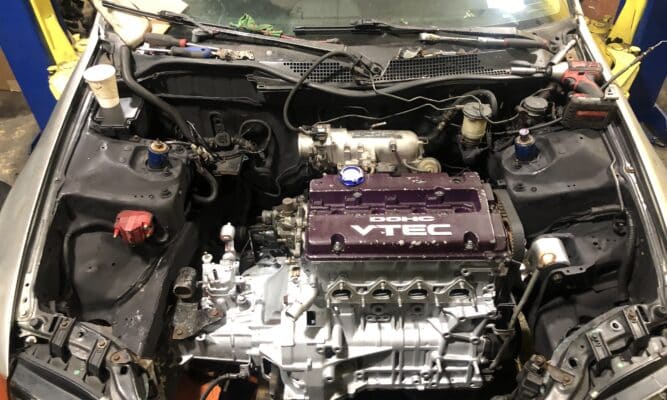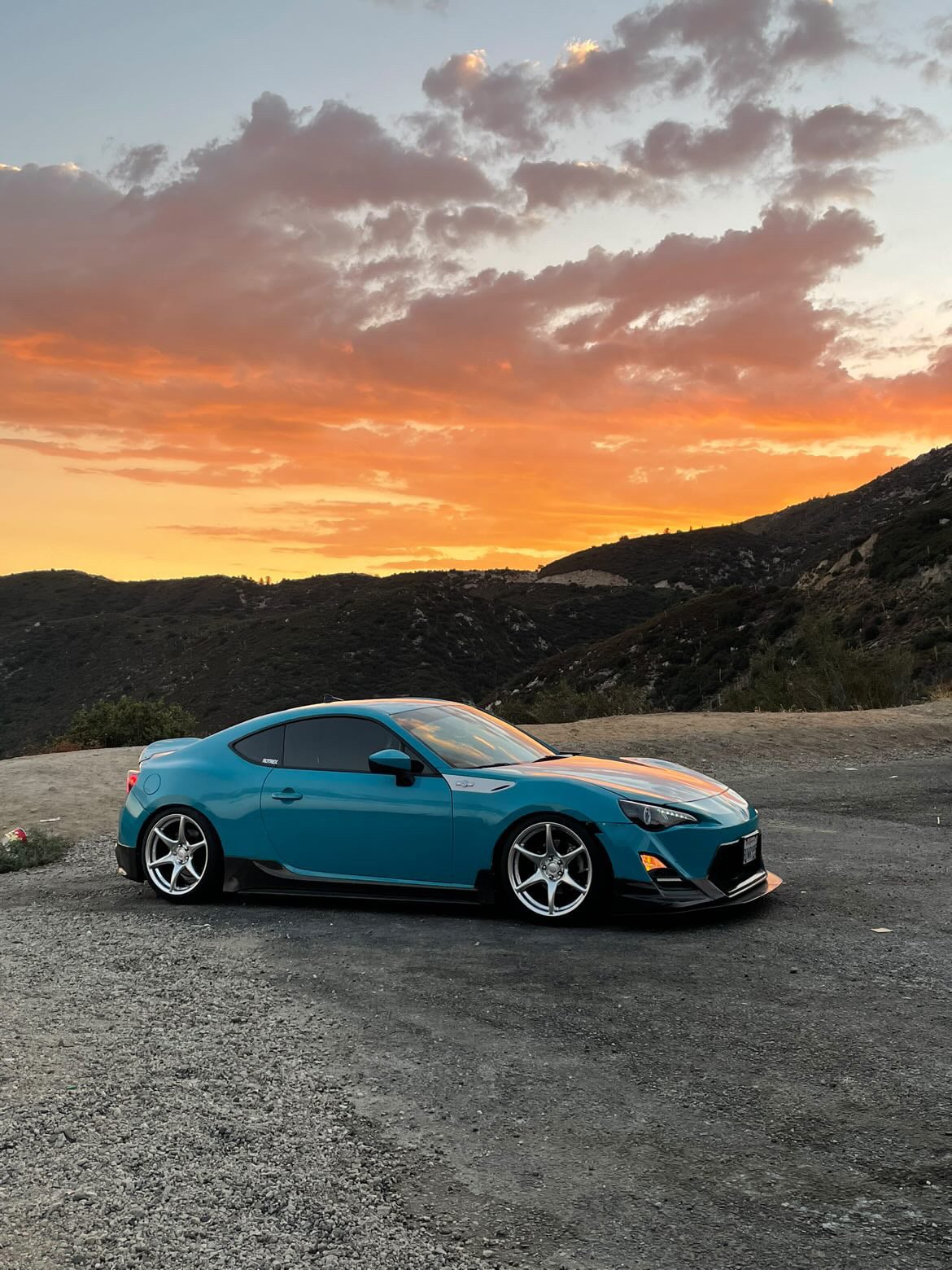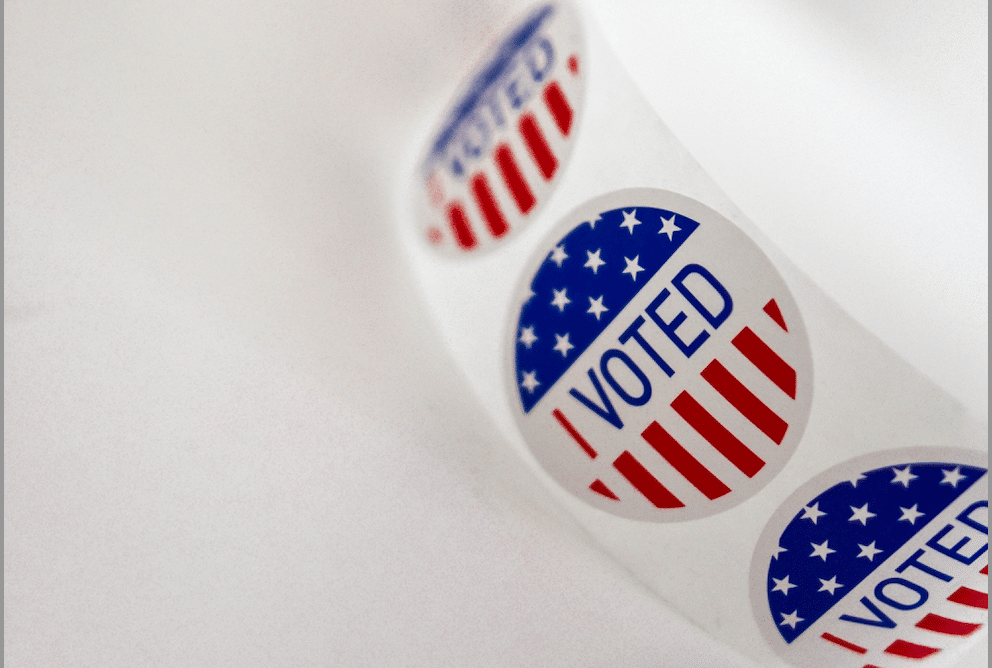Jasmine's Scion FR-S, photo by Jasmine McCord.
Jasmine McCord sat on the floor filled with tire marks and grease stains in her dad’s mechanic shop. She slowly loosened the lug nuts on her wheel to replace them with new wheels for her Scion FR-S to make her car look better. This is the first car that she has owned and built—something that you wouldn’t see on the road normally. She changed the color, the body panels of the car and the way the car sounds, and she feels really happy every time the engine roars.
“I got into the car scene because of my dad. He used to build cars when I was growing up. Since I built my own car I have been given the opportunity to learn more about them,” she said.
But she fears that her love of cars and the sound of the engine will be affected by the new laws aimed at cutting down carbon emissions from cars like hers. McCord and other car enthusiasts who work on their own engines, and others who race cars, wonder how the new regulations will affect their hobby and their sport.
On August 20, 2022, New York Governor Kathy Hochul signed a law that will require car manufacturers to sell only electric vehicles by 2035. This legislation comes as part of the Green New Deal in New York State to reduce greenhouse gasses.
When she signed the legislation, Hochul said, “With sustained state and federal investments, our actions are incentivizing New Yorkers, local governments, and businesses to make the transition to electric vehicles. We’re driving New York’s transition to clean transportation forward, and today’s announcement will benefit our climate and the health of our communities for generations to come.” New York followed California, which was the first state to ban gas-powered cars starting in 2035.
But that really worries car enthusiasts. “I am passionate about cars, the style and the looks of the car, the sounds that they produce from the engines and turbos. These machines are like an extension to the human ability where some can move at really high speeds or go through any type of climate or terrain. Since getting into cars I’ve come to realize that they are more than machines only for the sole purpose of transportation,” Aaron Yarna explained.
Car hobbyists fear that what they enjoy could be gone forever. Their passion for loud engines and modifying parts is something they enjoy doing. “It’s like taking away a piece of them. I know for some people cars are the only thing they have going for them. As for me, I know that it’ll take away everything that I’ve looked forward to as a kid,” McCord said. The Specialty Equipment Marketing Association (SEMA) proposed legislation to protect the engine modifications. Its RPM act would allow car owners to modify their cars and protect motorsports.
Gabriel Dasilva is a MPT, (Motor Performance Technician). He found his passion for cars within his family at a young age. He learned about the machinery and built his own vehicles and raced them. He met a group of people who are now his friends and co-workers at the same mechanic shop.
Dasilva drives a 1993 Honda Civic with an engine he changed for a better-performing one as well as adding a modification that helps burn more fuel by producing more oxygen to get more power out of the engine. His car came with an engine straight from the factory but he wanted to change it and imported his from Japan.

He doesn’t think electric vehicles will be the thing of the future. “I believe there will be a new type of efficient fuel that will replace gasoline and EV.” He pointed out that some car makers are looking at fuel alternatives to keep engines alive and not go fully electric.
Dasilva and others question the environmental damage done by mining lithium required for electric car batteries. “When people talk about the benefits that come with electric vehicles, I tell them to look at the petrol mine and the lithium mine and they’ll feel the same way with regular gas cars.” Lithium is an essential chemical element used to create batteries. But some may wonder if production of electric vehicles were to increase, will our environmental problem still be occurring.
But Trevor Houser, a partner at Rhodium Group, an environmental consulting firm said, “There are important environmental concerns related to mining for lithium and other minerals used in electric vehicles, but they pale in comparison to the environmental costs of producing, refining, transporting and burning gasoline and diesel.” He explained that electric vehicles eliminate the need for oil pipelines and the transportation of oil.
Houser also pointed out that new environmental laws aren’t aimed at car hobbyists. “The general commuters who use their vehicles to work are the people we want to convince to change their vehicles. Not the people who would use their vehicles for weekend drives.”
Car hobbyists will continue to press for better understanding of how they use their cars and lobby for exemptions from new laws. They won’t give up their passion quietly. As McCord puts it: “Working on cars allowed me to find a passion that I fell in love with. A vehicle to me is something more than just a car that takes me from point A to B but a vehicle that is like an extension of who I am as a person.”
Tags: CCNY Student Journalists City College community electric vehicles engines environment Erick Martinez hobbies Motor Sports New York
Series: Archive






